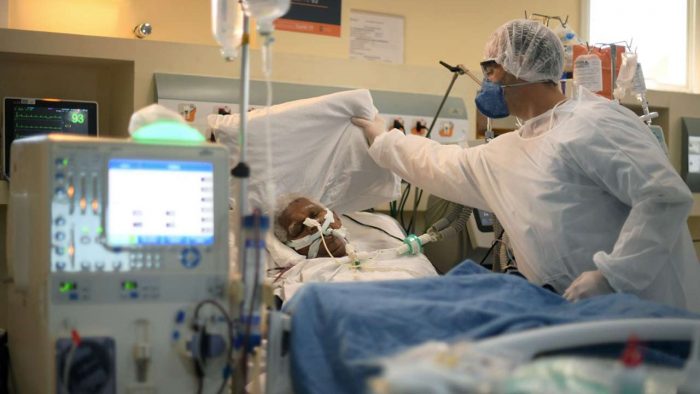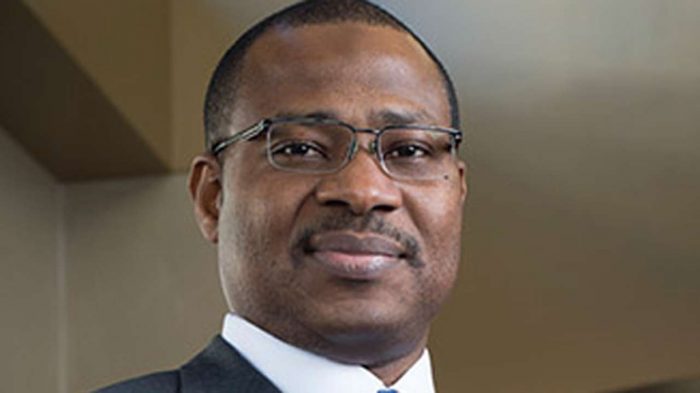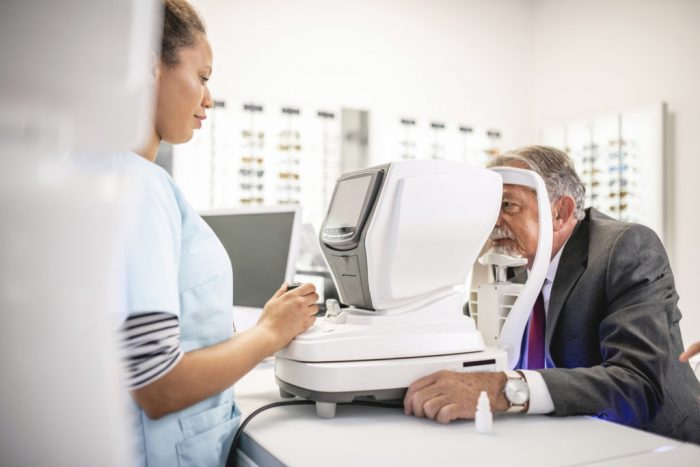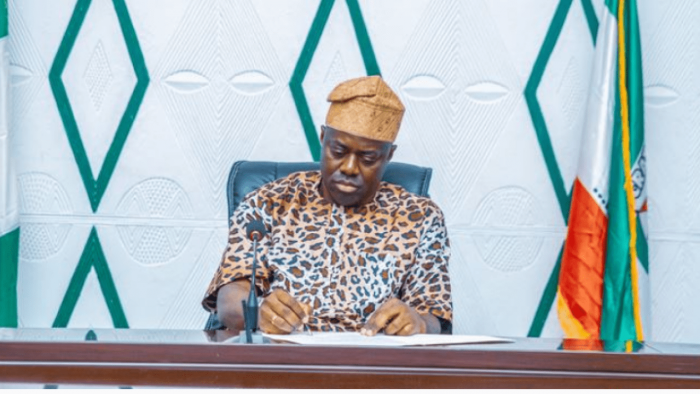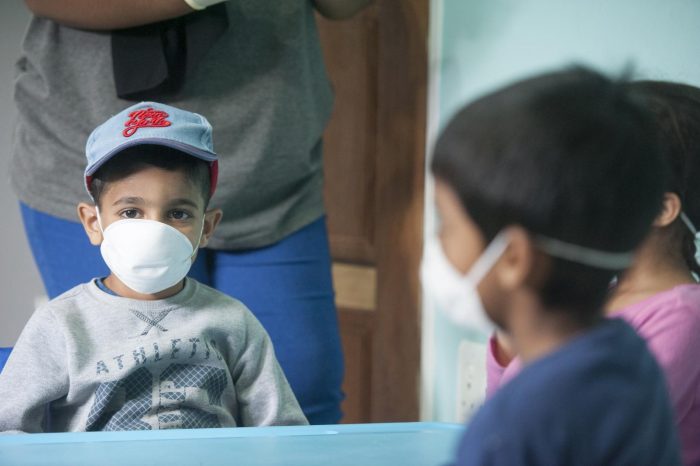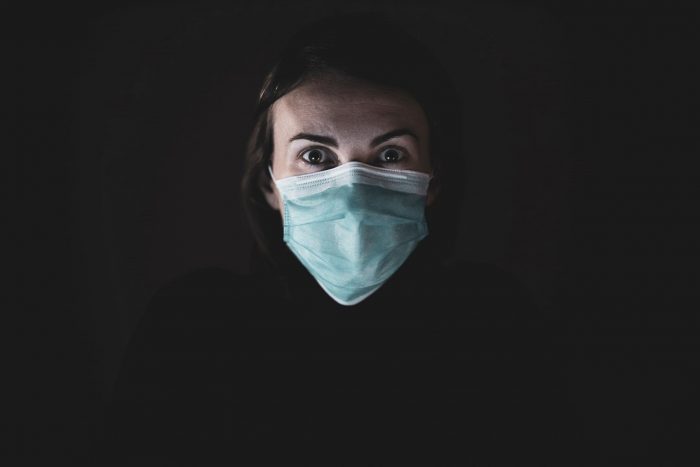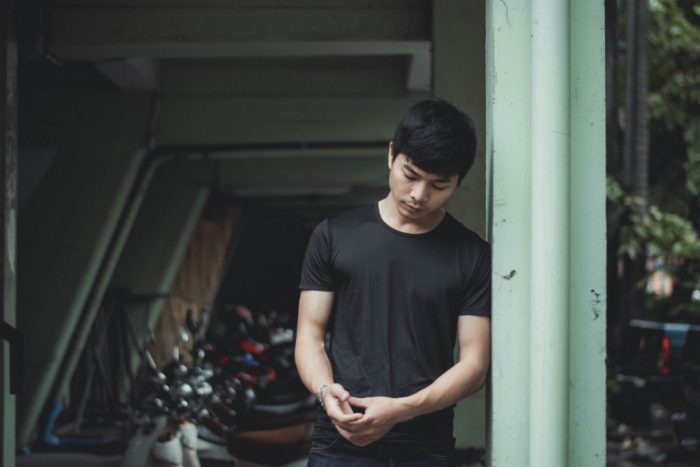With the uptick in the number of fresh COVID-19 cases in the country, the federal government yesterday advocated ways to make it a criminal offence for anyone in the country not to wear face masks.
The federal government’s advocacy, which entails state enacting laws to punish errant citizens, is in furtherance of its determination to get people to embrace non-pharmaceutical ways of combating the virus.
The federal government, in the last three weeks, has called on Nigerians to own the fight against COVID-19, following the spread of the virus reaching a community spread level.
It warned that in the absence of drugs or vaccine for the treatment or prevention of the disease, people would have to take personal responsibility for the protection of their lives by wholly embracing non-pharmaceutical methods of combating COVID-19 such as wearing face masks, regular washing of hands and maintaining social distancing.
An update yesterday by the Nigeria Centre for Disease Control (NCDC) showed that Nigeria recorded 675 new cases of COVID-19, bringing to 20,919 the number of confirmed cases in the country.
Of the 675 fresh infections, Lagos recorded 288 new cases, Oyo 76, Rivers 56, Delta 31, Ebonyi 30, Gombe 28, Ondo, Kwara and Kaduna 20 each, Ogun 17, Federal Capital Territory (FCT) 16, Edo 13, Abia 10, Nasarawa and Imo nine each, Bayelsa, Borno and Katsina eight each, Sokoto and Bauchi three each, while Plateau has two cases.
It said: “Nigeria has recorded 20,919 confirmed cases of COVID-19. 7,109 persons have been discharged, while 525 have died.”
However, with the widespread violations of COVID-19 regulations by people in many states of the federation, the federal government yesterday called on states to introduce laws that will make the use of face masks mandatory.
Speaking yesterday in Abuja during a briefing by the Presidential Task Force (PTF) on COVID-19, the National Coordinator of the task force, Dr. Sani Aliyu, said criminalising the non-use of face masks had become necessary in view of the laxity of Nigerians to all the protocols introduced to stem the escalation of the pandemic in the country.
Aliyu added that the public only complied with the protocols and guidelines on COVID-19 after the initial two weeks of the lockdown of parts of the country following a spike in the cases of the virus in March.
He, however, said in subsequent weeks, in spite of the exponential rise in number of people infected, many citizens appeared to have become lackadaisical in complying with the regulations.
The national coordinator noted that people were selectively using face masks and cloth coverings to avoid being scolded by security agencies or when challenged to so.
“We are now working with the security agencies and state governments to make the use of face masks in the public mandatory. There is total non-compliance with use of face masks and social distancing. It is unfortunate that about 70 per cent of Nigerians still believe that COVID-19 is not an issue. We are not taking this issue seriously enough. On social media platforms, people still talk of conspiracy theory in reference to COVID-19. We must accept that COVID-19 is with us; we need to fight it and must work with state governors to take measures to protect citizens,” Aliyu said, adding that Nigerians must take measures to avoid contracting the disease.
Also speaking the Chairman of PTF, Mr. Boss Mustapha, debunked the notion of a conspiracy theory about the virus.
He said at this stage of the ravaging effect of the virus in the country, he was at a loss what purpose a conspiracy theory would serve.
He added that continued denial, blame game and conspiracy theory would not help the efforts to curb the spread of the pandemic.
“I don’t know what purpose a conspiracy will serve. The figures of infections and fatalities we have in Nigeria are just statistics. You can place the death of somebody you know, so conspiracy theories are abstract – the reality of the situation is that COVID-19 is real.
“I have a colleague (Abba Kyari) who was instrumental to my appointment as the Chairman of the PTF. Kyari nominated me as the man best suited to lead this response. Do I need conspiracy theory to tell me that it is real?
“I have lost a personal friend, a classmate of over 45 years, a chief judge of a state, who fell victim of COVID-19. I have buried people in the community. I don’t need any conspiracy theory,” he stated.
FG: No State is COVID-19-free
The Nigeria Centre for Disease Control (NCDC) has said that no state in the country can claim to be COVID-19 free.
It explained that the only way states and countries across the world can be COVID-19 free is when a vaccine to effectively fight the virus is discovered.
NCDC Director General, Dr. Chikwe Ihekweazu, at the press conference yesterday, urged states to intensify their efforts on strict compliance with preventive measures.
He said: “Concerning some states declaring themselves COVID-19 free because they were discharging patients, I will like to say no single state in Nigeria is COVID-19 free, not one.
“No country in the world is COVID-19 free. Even New Zealand that is an island state is still having new cases after a period of not having any. We can’t separate ourselves from the rest of the country because we live in a context and viruses spread.
“That is why prevention is very important; if you can’t prevent, then you must detect. It is that detection that we call lab testing, and that is why we have to scale our lab test.
“We can only start talking about any state or community being disease-free when we have an effective tool to fight that disease. “That will come when we have a vaccine. Until then, there is no easy way to say this. “We have to keep pushing on these preventive measures and we have to develop our laboratory capacity to test.
“I think there are six or seven states in the country that do not have a testing facility yet; there are some that are in progress using the GeneXpert technology. By next week, we will be able to say that the country is covered.
“The challenge will now be about how to convey the samples from one part of the state to the other depending on how big the state is. We want to make sure we have testing capabilities in every state in Nigeria.”
FG Strives to Keep Case Fatality Ratio Low
Nigeria is currently implementing a twin-strategy of halting the spread of COVID-19 infection and curtailing its fatality rate on citizens.
Ihekweazu said the country had higher COVID-19 fatality ratio than Ghana and South Africa when viewed in global terms.
“Despite being relatively low, our fatality ratio is still higher than countries like Ghana and South Africa when considered in global terms,” he said.
With regards to COVID-19 laboratory testing turnaround, Ihekweazu said the centre could now deliver results within 36 hours.
According to him, at present no state in the country is without a COVID-19 case.
Nigeria Receives Medical Supplies from UN, EU
Also at the briefing, the Minister of Health, Dr. Osagie Ehanire, said Nigeria received a large consignment of medical supply on Saturday.
He said the medical supply was the first of a series of deliveries from the UN Group and the European Union.
“The donation is made up of a large number of various categories of personal protective equipment (PPE) and 547 oxygen concentrators, courtesy of the WHO, which our experience in Nigeria shows, are much more in use than ventilators,” he said.
He added that the consignment was handed over to the ministry by the Resident Coordinator of the UN in Nigeria, Mr. Edward Kallon.
Ghana Orders Arrest of Attackers of Nigerian Embassy
Speaking at the PTF briefing, the Minister of Foreign Affairs, Mr. Geoffrey Onyeama, said the President of Ghana, Nana Akufo-Addo, had ordered the immediate arrest of those responsible for the attack and destruction of property at the Nigerian Embassy in Accra, Ghana.
The minister who described the attack on the Nigerian Embassy as unjustified, said it violated the principles of the Vienna Convention, which defines diplomatic relations between countries.
He said the directive by Akufo-Addo was communicated to the federal government yesterday by Ghana’s Foreign Affairs Minister, Shirley Ayorkor Botchway, after Nigeria lodged a protest over the attack on its embassy with Ghana.
He said the federal government engaged with the Ghanaian highest authority on the matter yesterday at a meeting between the embassy officials and Botchway in Accra, where they registered their displeasure with the attack.
“And the message that I received directly from the Minister of Foreign Affairs from Ghana was that it will be settled and that President Akuffo-Ado has directed that very severe action to be taken against those responsible for that, including immediate arrest,” Onyeama added.
He also added that a non-state actor was involved in the attack, where a building in the embassy was vandalised, adding that the attack was not sanctioned by the host government.
“The foreign minister went today with the officers of the Nigerian High Commission to the land registry because it appears that there were some people claiming they had legitimate title for that piece of land.
“The Ghanaian authority will be coming out with a definitive statement- so we have to wait to hear officially and formally from them. We have registered our complaints and they have acknowledged and have apologised for what happened. We await their full report before we can make a full statement and take further action. We hope to receive that tonight (Monday), so tomorrow (today) we can make a statement,” Onyeama said.
It’s Insensitive to Reopen Schools, FG Insists
At the PTF briefing, the Minister of State for Education, Mr. Chukwuemeka Nwajiuba, said it would be insensitive for states to reopen schools now.
He was responding to a question on the decision of the Oyo State Government to allow schools resume.
The state government had announced that primary six pupils and students in junior and senior secondary schools three would resume on June 29.
But Nwajiuba said such decision contradicted the federal government’s position on the resumption of schools.
“The Ministry of Education did not give any guideline to Oyo State to reopen schools. We also think that that is a little bit contradictory.
“However, Oyo State, like all other sub-nationals, has a governor and under our constitution, governors are responsible for their states.
“But you must appreciate that the primary purpose of government is the security of its citizens. Security is not only when people start shooting guns at you; public health is key and primary in security delivery.
“And that’s why we are extremely cautious in making any pronouncement around this because the education sector owns the largest number of infrastructure in the country.
“For you to even begin to decide to unroll and unleash this in the public in the face of a pandemic, is, to be the very least, insensitive,” he added.
NCAA to Submit Flight Resumption Plan to PTF Tomorrow
Also at the briefing, the Director General of the Nigerian Civil Aviation Authority (NCAA), Captain Musa Nuhu, said the agency would submit flight resumption plan tomorrow to the task force .
Nuhu said the NCAA reached a decision on the matter after a meeting with industry stakeholders last weekend.
Speaking about the level of preparedness, the Chairman of the NCAA COVID-19 Committee, Mr. Godwin Balang, identified the guidelines and control measures employed by NCAA to work towards the restart of the industry.
“We have to develop the guidelines on uncharted ground, which includes issuing regulations in compliance with the International Civil Aviation Organisation (ICAO) Standard and Recommended Practices (SARPs); issuing guidelines to aviation industry and approve restart of aviation industry in totality or at individual level,” he said.
Balang explained that restart and recovery guidelines are based on 10 key principles, which include protecting people in harmonised but flexible measures; working as one aviation team and showing solidarity; ensuring essential connectivity; actively managing safety, security and health-related risks.
Others include to make aviation public health measures work with aviation safety and security systems; strengthen public confidence; distinguish restart from recovery; support financial relief strategies to help the aviation industry; ensure sustainability and learn lessons to improve resilience.
Balang also gave the level of readiness by different divisions of the industry such as airlines, air navigation provider, ground handlers, meteorologists and others.
According to him, the Nigerian Airspace Management Agency (NAMA) is 80 per cent ready; airlines (domestic) are 70 per cent ready; the Nigerian Meteorological Agency (NIMET) is also ready and domestic airports at 57 per cent.
UK Procures £661,000 PCR Machine for NCDC
Meanwhile, the United Kingdom (UK) has said that it has procured new Polymerase Chain Reaction (PCR) machine worth £661,000 for NCDC to speed up testing its capacity.
It said the PCR machine was procured using some UKAid funding committed to the Nigeria branch of the World Health Organisation by the British Government, to support the Nigeria’s efforts at stopping the spread of COVID-19 in the country.
The UK mission in Abuja in a statement issued yesterday, said the PCR machine, which is the most accurate laboratory method for detecting, tracking and studying coronavirus, would enhance the NCDC’s testing capabilities in Nigeria, while also increasing the nation’s capacity to carry out at least 3,000 tests per day.

